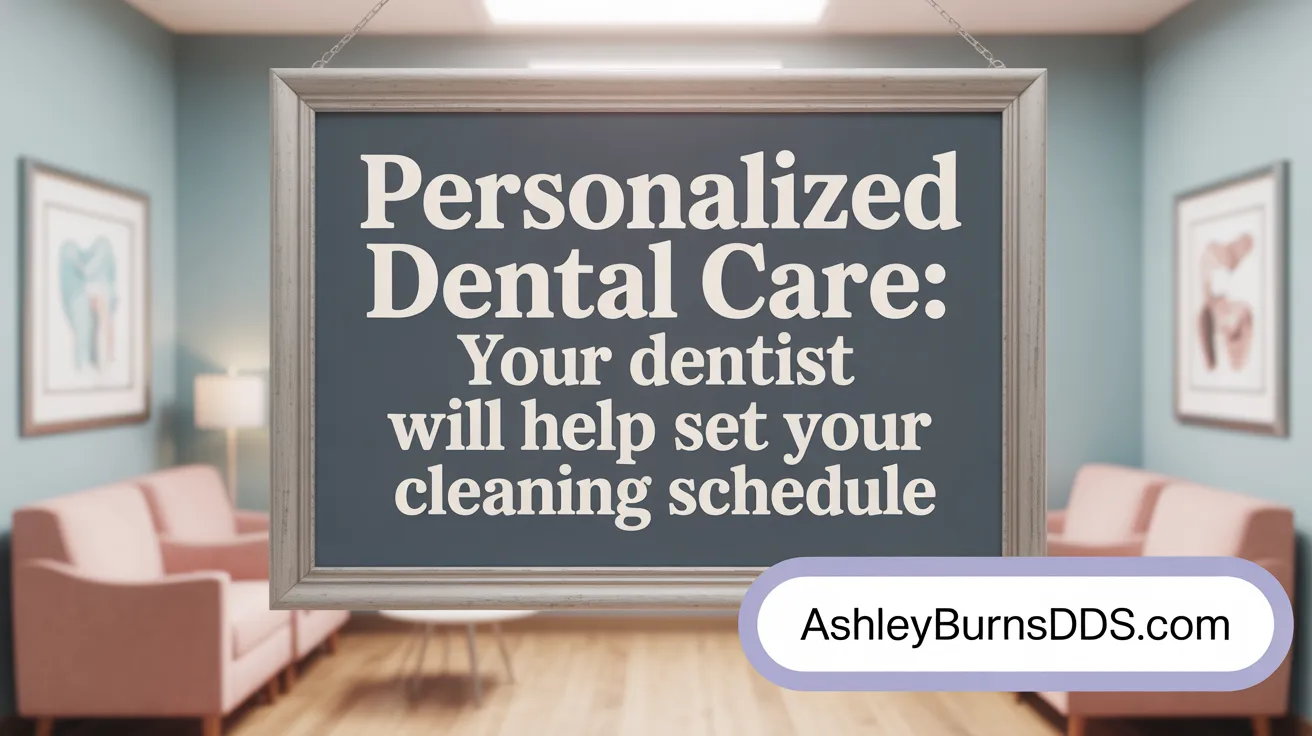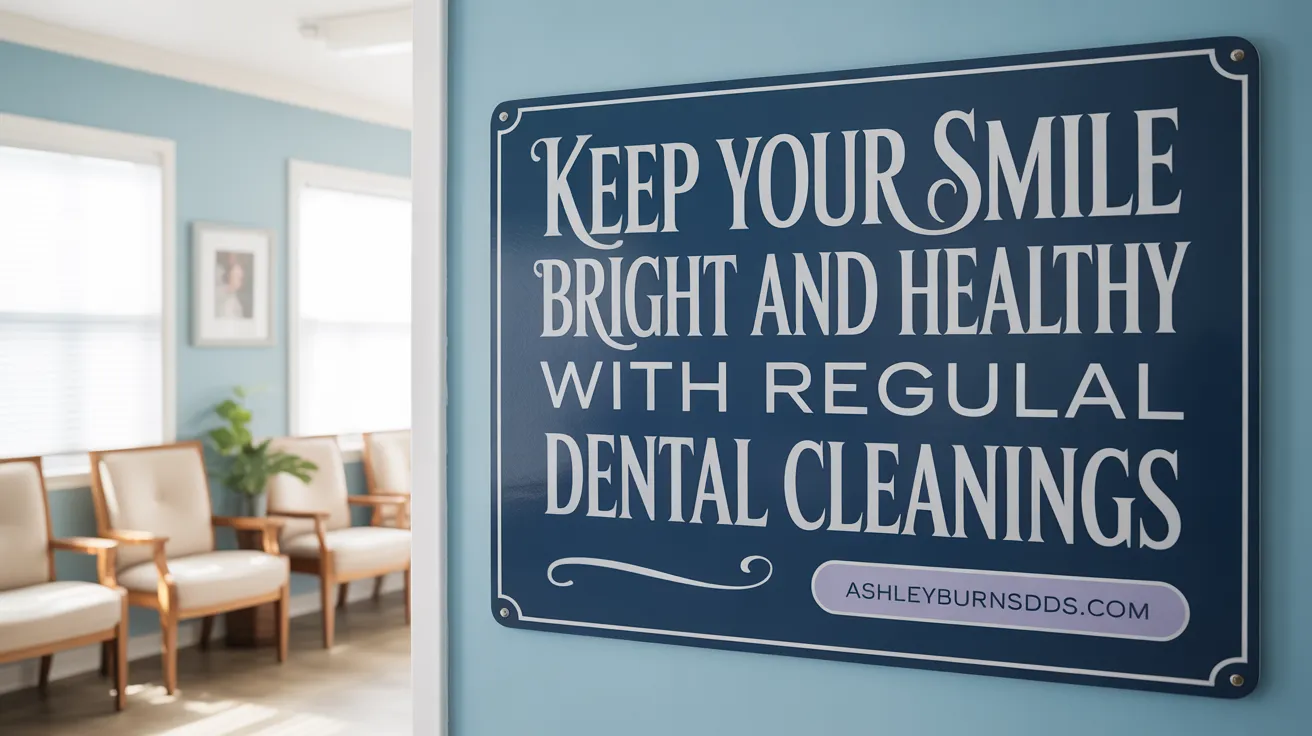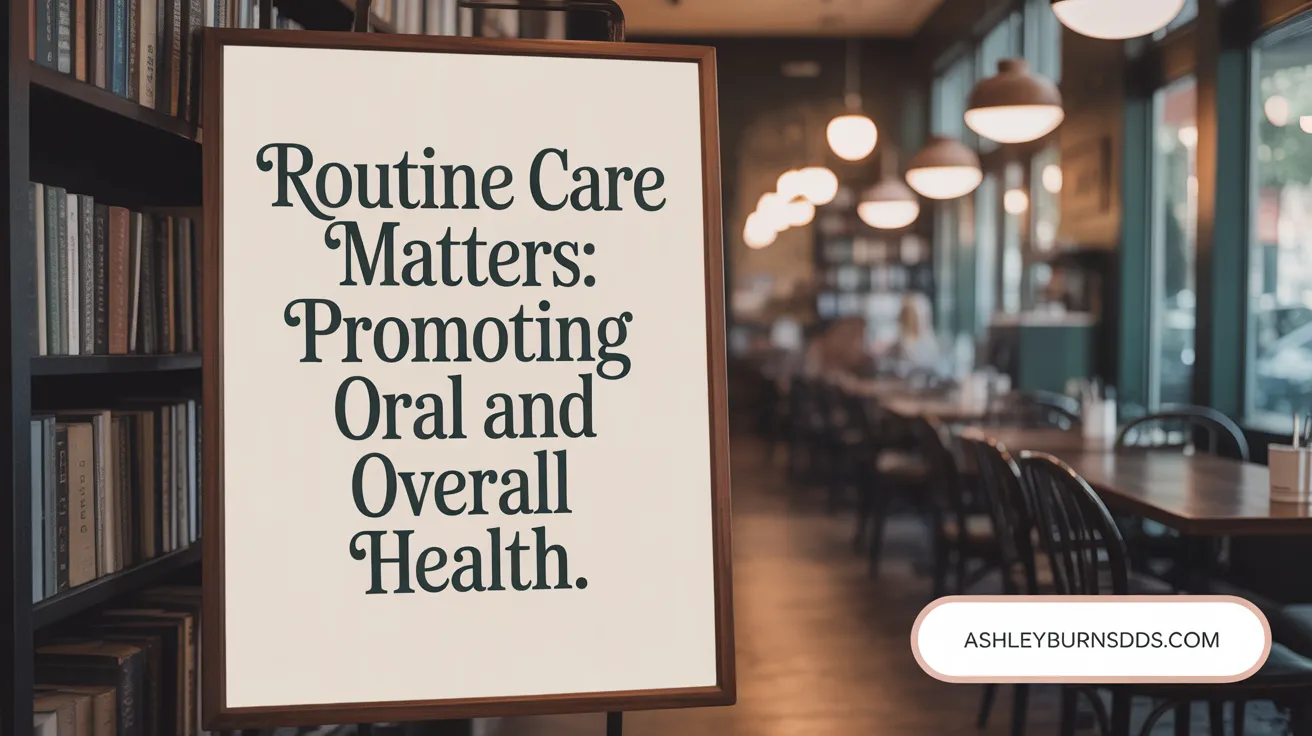Why Regular Teeth Cleaning Matters
Maintaining optimal oral health involves more than just daily brushing and flossing. Regular professional teeth cleanings play a crucial role in preventing dental problems and supporting overall well-being. But how often should you get your teeth cleaned? The answer isn't one-size-fits-all and depends on various individual factors. This article dives deep into the recommended frequency for cleanings, the benefits they offer, and how to recognize when it’s time for a visit to your dental professional.
General Recommendations for Teeth Cleaning Frequency

How often should I get my teeth professionally cleaned to maintain good oral health?
Most dental professionals recommend scheduling a professional cleaning every six months, which helps in removing plaque and tartar buildup that cannot be eliminated by brushing and flossing alone. Regular cleanings are effective in reducing the risk of cavities, gum disease, and other oral health issues.
However, this standard may not apply to everyone. Factors such as individual health status, lifestyle habits, and specific dental or medical conditions influence how frequently cleanings should occur. People with no underlying health issues and good oral hygiene habits might be able to go longer than six months — possibly up to a year — between visits.
Individuals who smoke, have diabetes, heart disease, or a family history of gum disease often require more frequent cleanings, sometimes every three to four months. Those with periodontal disease typically need professional maintenance every 3–4 months to manage their condition effectively.
Other risk factors include high sugar diets, medications like blood thinners, orthodontic appliances, or dry mouth issues. These can contribute to faster plaque accumulation, calling for more frequent dental visits.
The American Dental Association (ADA) supports a flexible approach based on individual needs. While the general guideline is twice a year, personalized care plans are advised, and your dentist can help determine the best schedule for you.
In summary, most people should aim for professional cleanings every six months. Still, individual circumstances could necessitate adjustments to this timeline. Consulting your dentist will ensure you receive the optimal care suited to your particular oral health profile.
Factors Influencing How Often Dental Cleanings Are Needed
What factors influence how often dental cleanings should be scheduled?
The recommended frequency for dental cleanings can vary based on individual health and lifestyle factors. For most adults with healthy teeth and gums, visiting the dentist twice a year—every six months—is generally sufficient to maintain oral health.
However, some individuals may require more frequent cleanings. People with gum disease, periodontal issues, or a history of cavities might need to schedule professional cleanings every 3 to 4 months to better control plaque buildup and prevent worsening of their condition.
Lifestyle choices significantly impact how often dental visits are needed. Smoking, a high-sugar diet, frequent snacking, and poor oral hygiene habits can accelerate plaque accumulation and tartar formation. These factors can increase the risk of cavities and gum disease, necessitating more regular professional cleaning.
Medical conditions such as diabetes, dry mouth from medications, autoimmune disorders, or compromised immune systems can also influence cleaning frequency. These health issues often heighten the risk of oral infections and require more diligent preventive care.
Genetics play a role as well. Some individuals may have a predisposition to gum disease or other oral health issues, which might lead their dental professional to recommend more frequent visits.
Age and the presence of dental appliances, like braces or retainers, require tailored cleaning schedules to ensure plaque does not accumulate unnoticed.
In summary, the ideal cleaning schedule depends on several personal factors. Consulting with a dental professional helps create a personalized plan that best supports long-term oral health.
| Factor | Impact on Cleaning Frequency | Additional Details |
|---|---|---|
| Oral health status | Healthy gums and teeth may need cleanings twice a year | Those with periodontal issues require more frequent visits |
| Lifestyle habits | Smoking and poor diet increase plaque buildup | More frequent cleanings may be necessary |
| Medical conditions | Conditions like diabetes or dry mouth elevate risk | Often require visits every 3-4 months |
| Genetics | Predisposition to gum disease | May require tailored, more frequent cleanings |
| Dental appliances | Braces or retainers harbor plaque | Regular professional cleaning essential |
Regular check-ins and discussions with your dentist help determine how often you should get your teeth cleaned, ensuring personalized care that supports overall health.
The Benefits of Regular Professional Teeth Cleanings

What are the benefits of regular professional teeth cleanings?
Getting your teeth cleaned regularly by a dental professional provides many important health and aesthetic advantages. These cleanings, which are typically recommended every six months, help remove plaque and tartar that can build up even with diligent brushing and flossing.
Plaque is a sticky film of bacteria that, if not removed, can harden into tartar, leading to cavities and gum disease. Professional cleanings effectively eliminate these deposits, reducing the risk of tooth decay and periodontal problems. Besides protecting oral health, cleanings also contribute to fresher breath and a brighter smile.
Most importantly, routine dental visits help in the early detection of potential issues. Dentists can identify signs of cavities, gum disease, or other oral health problems before they become more severe, often saving patients from complicated, costly treatments.
Research shows that maintaining a regular cleaning schedule can also positively impact overall health. Conditions like heart disease, stroke, and even dementia have links to oral health, especially chronic gum disease.
Another benefit is the prevention of staining caused by coffee, tea, or tobacco, which professional polishing can help diminish. Regular cleanings also promote healthier gums, reducing bleeding and inflammation.
In summary, consistent professional teeth cleaning supports the prevention of dental problems, enhances aesthetic appeal, and can contribute to better overall health. Most adults benefit from visiting their dentist at least twice a year, with more frequent visits recommended for those with specific risk factors.
| Aspect | Details | Additional Insights |
|---|---|---|
| Prevents cavities and gum disease | Removes plaque, tartar, bacteria | Crucial for maintaining healthy teeth and gums |
| Reduces bad breath and staining | Cleaning removes surface stains | Enhances confidence and appearance |
| Detects issues early | Checks for decay, cracks, growths | Allows for early treatment, less invasive procedures |
| Builds link to overall health | Reduces risks of systemic issues | Supports heart health, stroke prevention, and more |
Engaging in preventive dental care through regular cleanings is a simple step that offers substantial benefits for long-term health and wellness.
Different Types of Dental Cleanings and What to Expect
What types of dental cleanings are available, and what can I expect during the procedure?
There are several kinds of dental cleanings tailored to different oral health needs. Routine prophylaxis cleanings are the most common and are designed for healthy teeth and gums. These typically involve removing plaque and tartar, polishing teeth, and flossing—all in about 30 minutes. People with good oral health usually undergo these twice a year, helping prevent cavities and gum disease.
In cases where there is extensive plaque buildup or tartar that cannot be removed by regular cleaning, a dentist might recommend a full mouth debridement. This process clears away large amounts of tartar that have hardened on the teeth, making subsequent treatment easier.
For gum disease, especially periodontitis, a more intensive procedure called scaling and root planing—also known as deep cleaning—is necessary. This involves cleaning below the gum line to remove bacteria, plaque, and calculus from periodontal pockets. Deep cleanings may require local anesthesia and often need to be repeated if the disease persists.
Regular dental visits might also include periodontal maintenance visits every 3-4 months to manage ongoing periodontal issues. For patients with specific conditions or risk factors such as smoking, diabetes, or a family history of gum disease, more frequent cleanings might be recommended.
During a typical cleaning session, a hygienist uses special instruments or ultrasonic scalers to carefully remove plaque and tartar from the teeth surfaces and below the gumline. After cleaning, the teeth are polished, which smooths the surface, making it harder for plaque to stick. The entire process generally lasts between 30 minutes to an hour, depending on the amount of cleaning needed.
Some advanced procedures, like scaling and root planing, can be more time-consuming and may require local anesthetic to ensure comfort. Additional treatments such as fluoride application or sealants might be included to further protect teeth.
In summary, whether for routine maintenance or treatment of gum disease, dental cleanings are an essential part of oral health care. They are safe, typically painless, and offer significant benefits by reducing the risk of cavities, gum disease, and potential connection to overall health issues like heart disease.
Recognizing When You Need a Dental Cleaning and Maintaining Routine Care

How can I tell if I need to get a teeth cleaning?
You may need a teeth cleaning if you notice signs like persistent bad breath, bleeding, or swollen gums, which indicate plaque and tartar buildup. Visible plaque appears as a white or yellow film on your teeth, especially near the gumline, while tartar is a hard, white deposit that can't be removed by brushing alone. Other signs include tooth sensitivity, discoloration or staining, and any discomfort or pain while chewing. Receding gums, loose teeth, or deep pockets along the gumline are also indicators of gum disease that require professional cleaning.
Regular dental check-ups every six months are recommended to keep your mouth healthy and prevent issues that could lead to more serious problems. Dentists can evaluate your oral health and determine whether more frequent cleanings are necessary based on your risk factors.
Routine dental hygiene practices
Maintaining good oral hygiene between dental visits is crucial. It involves brushing your teeth twice daily with fluoride toothpaste for at least two minutes, ensuring thorough cleaning of all surfaces. Flossing daily or using interdental cleaners helps remove plaque from between teeth where a toothbrush can't reach.
Limiting sugary foods and drinks reduces plaque formation, while avoiding tobacco products protects your gums and overall oral health. Regular professional cleanings, which typically take about 30 minutes, involve scaling to remove plaque and tartar, polishing to smooth tooth surfaces, and sometimes fluoride treatments to reinforce enamel.
These habits collectively create a strong foundation for oral health and help prevent cavities, gum disease, and bad breath. Your dentist can also advise personalized care routines based on your specific needs.
Scheduling cleanings and personalized care plans
Healthy adults with no underlying health issues generally benefit from dental cleanings every six months. However, people with increased risk factors—such as smoking, diabetes, or periodontal disease—might need more frequent visits, like every 3 to 4 months.
For individuals with periodontal disease, professional cleanings may include deep cleaning procedures like scaling and root planing, performed when there are signs of gum infection or pocket depths of 4mm or more. Patients with chronic conditions or those wearing orthodontic appliances should discuss their optimal schedule with their dentist.
Personalized care plans help address specific risks such as genetics, diet, medication use, or health conditions that affect oral health. Regular visits allow early detection of issues and timely intervention, maintaining both dental and overall health.
Health risks of skipping cleanings
Skipping regular dental cleanings can lead to the accumulation of plaque and tartar, increasing the risk of cavities and gum disease. Untreated gum issues might progress to periodontal disease, which can cause tooth loss and has been linked to more serious health conditions like heart disease and stroke.
Furthermore, dental plaque maturation can lead to the growth of bacteria that contribute to systemic health problems. Regular cleanings disrupt this process, reducing bacteria and protecting your health.
Most experts agree that approximately twice-yearly professional cleanings strike a balance between preventive care and early problem detection. Those with higher risk factors might need more frequent visits to thoroughly manage their oral health risks.
Personalizing Your Teeth Cleaning Schedule for Optimal Oral Health
While many adhere to the common advice of professional teeth cleanings every six months, individual dental care needs vary widely. Factors like health conditions, lifestyle habits, and oral hygiene practices significantly influence how often you should see your dental professional. By recognizing personal risk factors and changes in oral health, you can work with your dentist to establish a cleaning schedule that best supports your smile and overall health. Regular teeth cleanings are an essential preventive measure—not just for maintaining a bright smile but for safeguarding long-term well-being.
References
- Recommended Frequency of Dental Cleanings
- How Dental Cleanings Work
- How Regularly Should You Get Your Teeth Cleaned?
- How Often Should an Adult Get a Deep Teeth Cleaning?
- Why Patients Need To Clean Their Teeth Every 3 Months ...
- How Often Do You Really Need a Dental Cleaning?
- How Often Should I Have My Teeth Cleaned?
- How Often Should You Get Your Teeth Cleaned?
- HOW OFTEN SHOULD YOU GET YOUR TEETH ...
- Dental Cleanings: How Often Do You Really Need Them?
